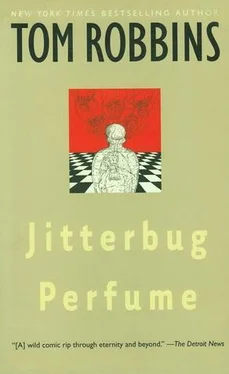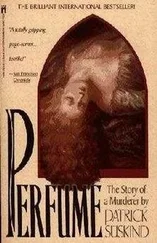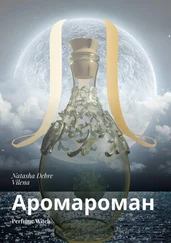“You were humiliated.”
“My lady, that is an understatement. In my own land I had a reputation as a warrior.”
“Did you leave then?”
“I was too winded to even crawl away on my knees. They gave me some oil for my scrapes and scratches and invited me into the caves. What do you think it was like in them? Sharp rocks, cold water dripping from the ceilings, bats screeching by in the darkness? Oh, no, those caves were covered with beautiful carpets and tapestries, thick and warm and opulent. Every nook and cranny glowed with butter lamps, and in little saucers powders were burning that caused the air to smell like orange groves and gardens.”
“Incense!” exclaimed Kudra.
“Whatever. And there were women inside preparing spiced lamb and heating wine. Everyone drank wine until their eyes were red. They also smoked pipes of ground-up leaves from the hemp plant—”
“I know the plant. We made rope from it. Smoked it, you say?”
“Yes, and it seemed to make them dreamy. They would stare into the fire, laughing for no apparent reason. They offered me a pipe, they offered me wine and meat, they even offered me a woman, or two women if I chose. Of course, I refused. I thought it was a trick, a test of my purity. I fell asleep alone, splitting with desire, only to be awakened in the middle of the night by a bucket of icy water emptied upon my head. Well, then I got out, let me assure you. I was angry and confused — and scared. Because, Kudra, no hand held the bucket that dumped that water on me, the bucket was suspended in midair, just tipping itself on me of its own accord.”
“Alobar, you were confused, all right. Or else dreaming. Or. .” She lowered her eyelids, lids that resembled purses sewn from the skins of thick, dark grapes. “Or you are telling me a fable.”
“It is all true, I swear it.”
“Then I suppose I must believe you. Tell me, did they permit you to leave freely?”
“One of the company — there were perhaps a dozen of them in all, not counting the women — followed me outside to inquire about my intentions. I told him I thought I would return to the Samye lamasery. 'Good,' he said. 'You will learn much there. Then you can come back to us.' Well, that heated me up, to be sure. 'There are not enough demons in this world or the next to drag me back to this accursed place,' I yelled. I swore that I would never return. He laughed and reached into my clothes and pulled an egg from where no egg had been. He cracked the egg on the ground, and a huge dog bounded out of it — it looked exactly like Mik, my own dog from my own city that I had not seen in the span of eight Feasts of Feasts. It licked my feet in a familiar way, and then it ran into a cave and disappeared. .”
“Alobar!”
“I swear it to be true.”
“Remarkable. And did you run after it?”
“Oh, no. I staggered off into the night and eventually did, indeed, return to Samye, where you have caught up with me. I wanted to forget the whole experience with Bandaloop. Unfortunately, it has remained alive in my mind.”
“But you have never gone back?”
“I made a vow. If we mortals can better the gods in no other way, we can at least keep our promises.”
“Why did you return to Samye?”
“I do not know for sure. When I arrived, I asked to see Fosco. He entered the gatehouse with his calligraphy brush in his hand, and I seized him by his robe and shook him until ink flew. 'Why did you send me to that crazed place?' I demanded. He answered me mildly. 'The Bandaloop doctors are much despised by my superiors, and I risked reproachment for directing you to them. They practice a base, orgiastic form of religion that we cannot condone. But they are powerful magicians and healers and fortunetellers, and I thought they might assist you in your obsession with your earthly vessel. Forgive me.' Fosco was so obviously sincere that it behooved me to ask his forgiveness. Not only did he grant it, he persuaded the abbot to let me remain at Samye as a laborer and student. It appears that I have been here a long time.”
Kudra looked him over. “Samye has agreed with you. You appear healthy and strong. I did not lie when I mentioned down at the river that you have not aged since I saw you last. Perhaps you are receiving here the knowledge you were after all along. What have the lamas taught you that would keep you in their tutelage for twenty years?”
“You really think I have not aged? We had a magic glass back at. .” His voice trailed off, held hostage by memory. Bound, gagged, and blindfolded with a swath of ermine ripped from a concubine-stained bedspread, his voice lay in an unlit corner until memory collected its ransom or else took pity. The sun had sunk so low that it was looking up Chomolungma's dress by the time Alobar's freed voice resumed its normal life. “There are no mirrors hereabouts. The river shows me how to shave, but it shows me little in the way of skin condition or hair color. Hmm. It pleases me, what you say.” He sat down, and once again he touched her shoulder. She did not pull away.
“I have found peace here. Years of one sort of turmoil or another had rubbed against my spirit until it was raw, but it has been healed by tranquility, a calm that comes from within as well as without. The architecture, the painting, the sculpture, the music and liturgy and refined garments, but most of all, I think, the meditation, the hours each day of sitting silent and motionless, these things have smoothed my frayed edges and left me floating through life like a toad bladder in a mountain stream. The lamas have suffered endlessly from my resistance to their dogma and strict morality, but I daresay we have all benefited. I have grown serene, and they, well, many a ton of stone has been moved for them, and they have been kept on their toes. Ha ha.”
“Am I to assume that they have not instructed you in the practice of long life?”
“Not openly. They speak to me occasionally on the subject, but they obtain their ideal through gradual stages of spiritual progress. And their ideal is neither immortality nor longevity, but release from the cycle of birth, death, and rebirth.”
“Yes, yes. That is my people's ideal, as well. Do you fail to appreciate the perfection that lies at the heart of that goal?”
With his free hand, Alobar scratched his head, a head herring-boned with equal parts chestnut and silver, like a cow pie on a frosty morning. The other hand held fast to its roost on Kudra's shoulder. “Frankly, I do not appreciate it as deeply as I probably should. Or, maybe it is that I long not for the perfect but for the complete, and there is something incomplete about a life that is dedicated to escape from life.”
“Please, explain.”
“Here they teach that much of existence amounts only to misery; that misery is caused by desire; therefore, if desire is eliminated, then misery will be eliminated. Now, that is true enough, as far as it goes. There is plenty of misery in the world, all right, but there is ample pleasure, as well. If a person forswears pleasure in order to avoid misery, what has he gained? A life with neither misery nor pleasure is an empty, neutral existence, and, indeed, it is the nothingness of the void that is the lamas' final objective. To actively seek nothingness is worse than defeat; why, Kudra, it is surrender; craven, chickenhearted, dishonorable surrender. Poor little babies are so afraid of pain that they spurn the myriad sweet wonders of life so that they might protect themselves from hurt. How can you respect that sort of weakness, how can you admire a human who consciously embraces the bland, the mediocre, and the safe rather than risk the suffering that disappointments can bring?”
Alobar was surprised by the ferocity with which he felt himself attacking the teachings of the men who had pacified him for the past two decades. Perhaps his need for Kudra was whipping long-smoldering dissatisfactions into flames. For her part, Kudra could not locate the words with which to defend her faith. Perhaps her faith had been taken from her. She looked at Alobar and said nothing. He accepted her silent gaze as encouragement to continue his diatribe — and to inch his fingers toward orbit of her coconut moons.
Читать дальше












